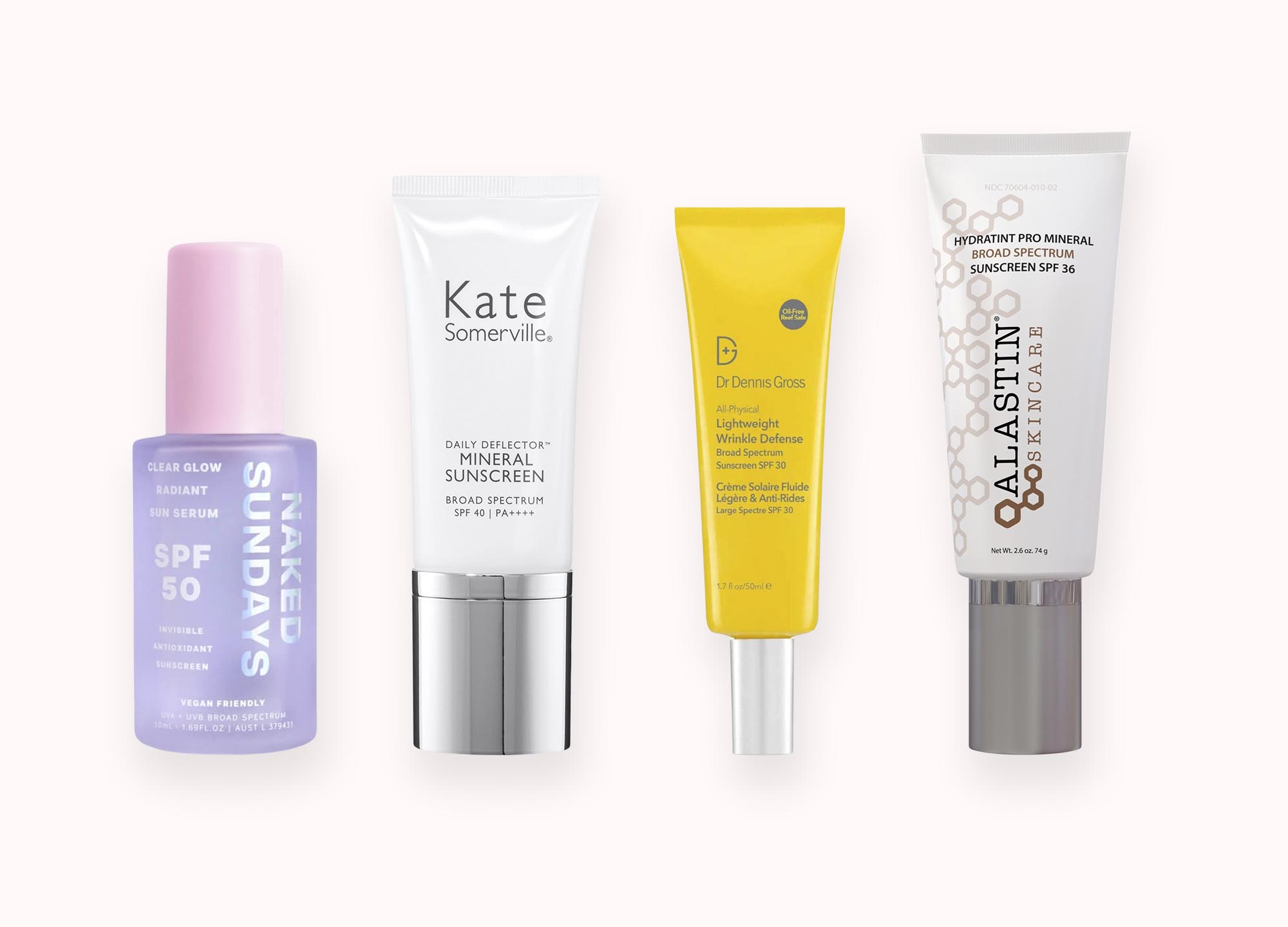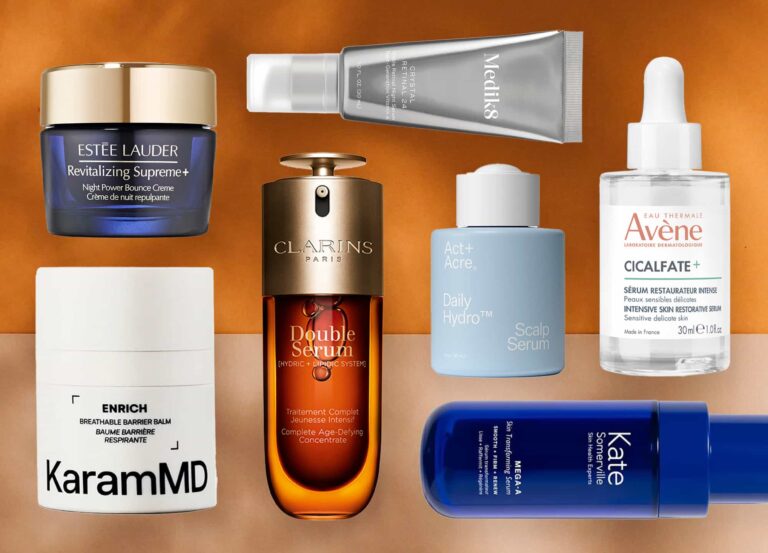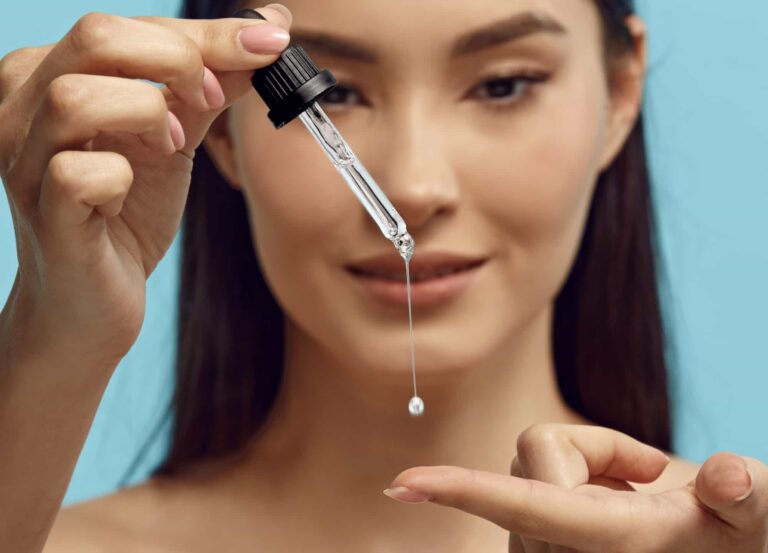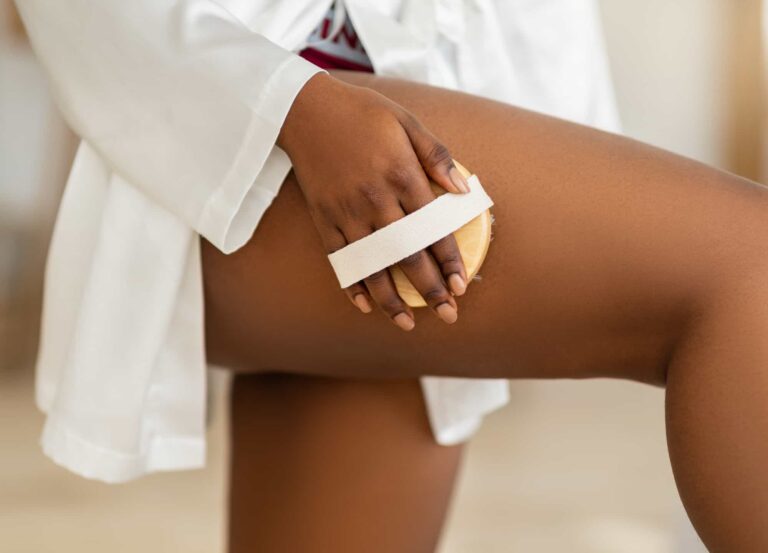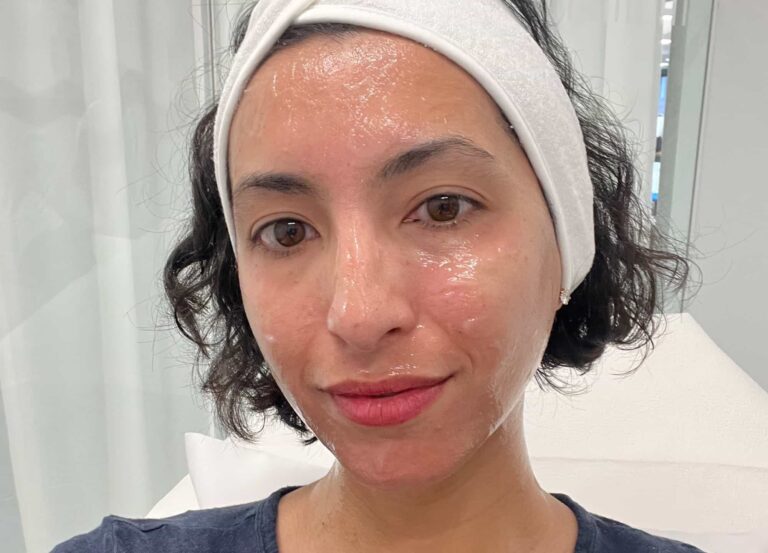Even in 2022, sunscreen still has a hard time shaking its reputation of being thick, unblendable, and greasy—we’ve all got a bit of residual trauma left over from our mothers slathering us head-to-toe in the pasty white stuff that came out of the old-school, pink Coppertone bottle. But formulas have come a long way, and it’s no longer a challenge to find lightweight, high-quality options that work for every skin type, tone, and need. If breakouts and clogged pores are your primary complexion concerns, there are a few key things to pay attention to when shopping for SPF, say dermatologists.
Keep reading for their advice, as well as the best face sunscreens for acne-prone skin.
What causes acne breakouts from sunscreens?
“Certain ingredients, such as isopropyl myristate, isopropyl palmitate, ethylhexyl palmitate, and acetylated lanolin, are more likely to induce comedones—pimples—in persons with acne-prone skin,” says Dr. Lorrie Klein, a board-certified dermatologist in Laguna Niguel, California. If you don’t have acne on your body, you may feel comfortable using products with these ingredients, but they should be avoided on the face.
Dr. Janet Allenby, a board-certified dermatologist in Delray Beach, Florida, points out that oils were once heavily used in sunscreen formulas in the past, to enhance spreadability—which was definitely not acne-friendly. “Micronized zinc oxide and titanium dioxide are used more routinely now in our mineral sunscreen, which are much more cosmetically elegant and not as likely to cause breakouts,” she says.
The magic word to look for on any sunscreen label is noncomedogenic, and if you can’t find that, oil-free is your next best bet. Noncomedogenic is a fancy way of saying that the product will not clog pores. “If skin-care products, including sunscreens, have ‘noncomedogenic’ on their label, it usually means they have been tested not to induce acne. Facial sunscreens are usually noncomedogenic,” says Dr. Klein. Oil-free doesn’t automatically mean a product won’t clog pores, but more often than not, that’s the case.
Should you choose a chemical or physical sunscreen for acne-prone skin?
Physical sunscreens, also called mineral sunscreens, contain titanium dioxide or zinc oxide and work by sitting on top of the skin and creating a barrier that blocks UV rays from penetrating the skin at all. Chemical sunscreens, on the other hand, are absorbed into the skin and convert UV rays into heat, which they then release.
So which is better for acne-prone skin? “Both physical and chemical sunscreens are effective at blocking harmful UV light rays,” says Dr. Allenby. “But I recommend mineral sunscreens, which are physical blockers. They’re more gentle on the skin and less likely to cause breakouts [and are] also coral reef–friendly,” she says. Dr. Klein agrees and says physical sunscreens are generally recommended over chemical ones for people battling any sort of sensitive skin issue, whether it be acne, rosacea, or eczema.
What about tinted moisturizers for acne-prone skin?
Tinted moisturizers are great for imparting light makeup coverage while still delivering the benefits of sun protection, and Dr. Allenby says that they are a safe option for those with acne, especially for daily use.
“The proper way to use sunscreen is to use it multiple times over the day. On a day-to-day basis, reapplying sunscreen is not realistic, so I recommend mineral sunscreens that are tinted and [have,] at least, an SPF [of] 30,” explains Dr. Allenby. “If you don’t want a tint, it’s fine to use a regular moisturizer—but the SPF should be at least 30.” It’s easier to find cosmetic products that are oil-free and/or noncomedogenic, she says, but you should still check the label, to make sure.
The best sunscreens for acne-prone skin
Naked Sunday SPF50 Clear Glow Radiant Sunscreen Serum ($37)
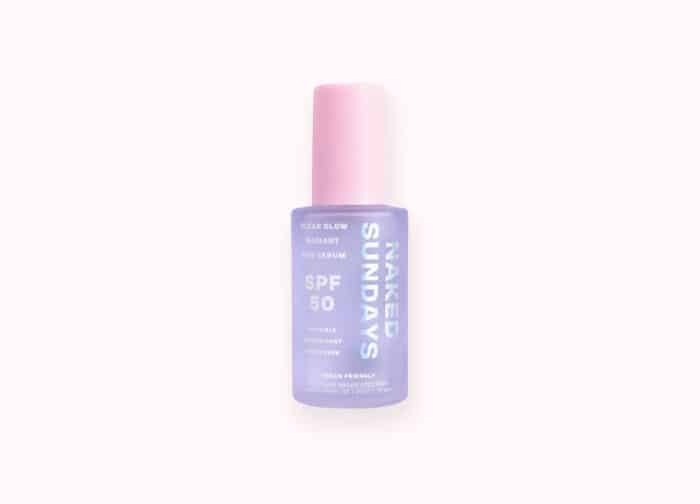
Sunscreen haters, this one is for you—it’s so good that it just may actually make you want to use SPF daily. The aptly-named pick is indeed more akin to a featherweight serum than a thick ‘screen. (And given that it contains hydrating jojoba and antioxidant-rich tomato and watermelon extracts, it can easily pull double-duty as your daily serum as well.) It goes on totally clear and quickly dries down to a beautiful satin finish, ideal if your complexion tends to be oily. Since it’s non-comedogenic, it’s another good sunscreen that won’t clog pores or leave you stressed about potential breakouts.
Dr. Dennis Gross Skincare All Physical Lightweight Wrinkle Defense Broad-Spectrum Sunscreen SPF 30 ($42)
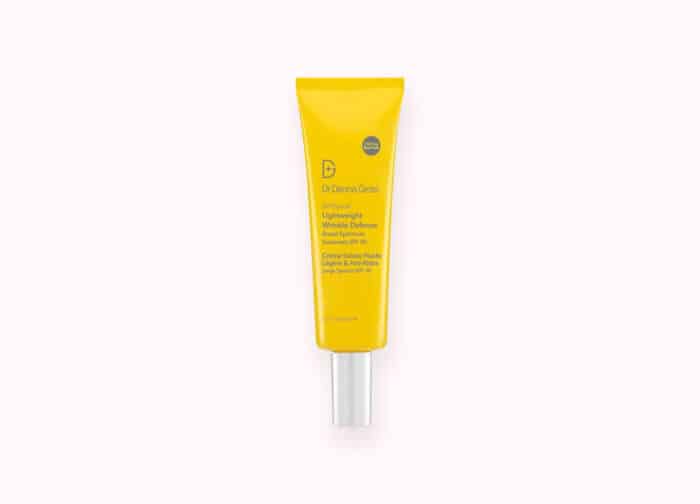
One of the best mineral sunscreens for oily, acne-prone skin, this zinc oxide-based formula is incredibly sheer and not the least bit greasy (so much so that you may even forget you’re wearing it). It’s fragrance-free and sensitive skin-friendly too, and has the added benefit of antioxidants that act as a second line of defense against damaging UV rays.
Obagi Sun Shield Matte Broad Spectrum SPF 50 ($53)
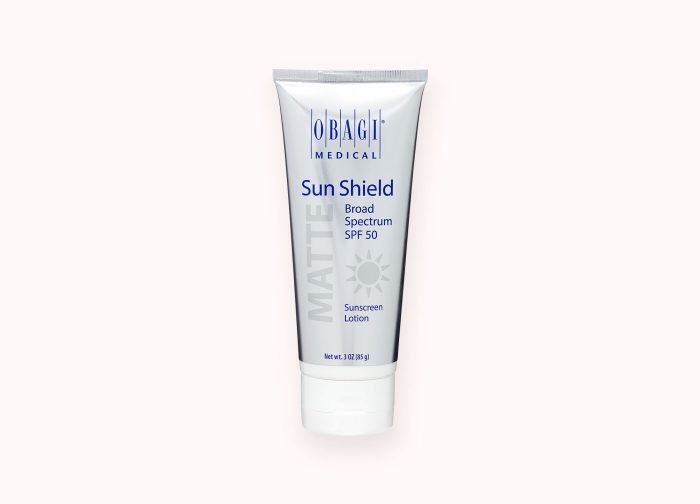
This chemical Obagi sunscreen features an SPF of 50, broad-spectrum protection, and a noncomedogenic formula that dries to a matte finish so it won’t look or feel greasy or oily after applying. An added perk: it contains vitamin C, to protect against free-radical damage from the environment while you’re out all day.
Kate Somerville Daily Deflector Mineral Sunscreen SPF 40 ($54)
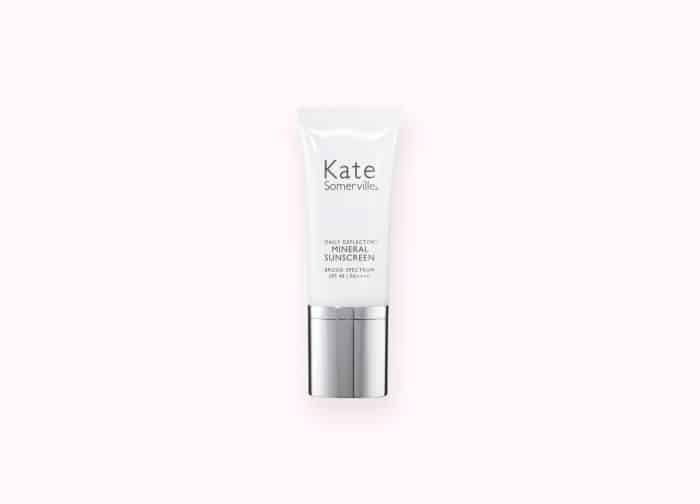
A mineral sunscreen with soothing vitamin E and no added fragrance, Daily Deflector is ideal for those with sensitive and acne-prone skin. Not only does it protect against UV rays, but it helps block blue light—one of the main causes of hyperpigmentation—coming from the screens we all stare at constantly.
HydroPeptide Solar Defense Tinted Broad Spectrum SPF 30 ($48)
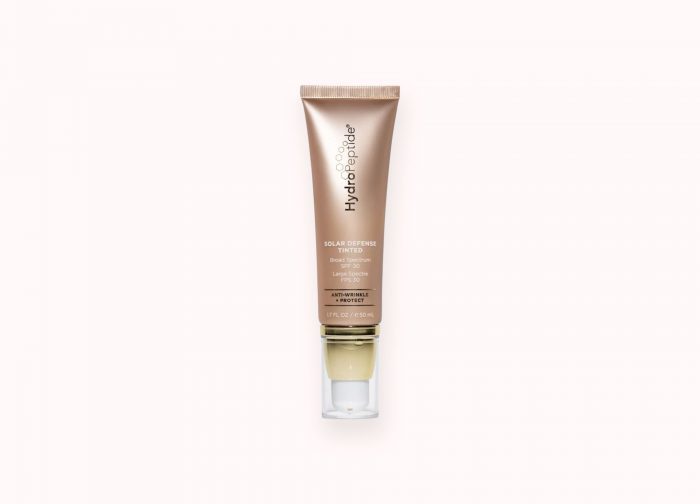
This triple-threat formula is part moisturizer, part makeup, and part mineral sunscreen. Its hyaluronic acid hydrates, while powerful antioxidants nourish and protect from environmental pollutants, including UV rays, in tandem with titanium dioxide and zinc oxide. The tint provides light coverage, with a matte finish, for Fitzpatrick skin tone types I–V.
Alastin HydraTint Pro Mineral Broad Spectrum SPF 36 ($60)
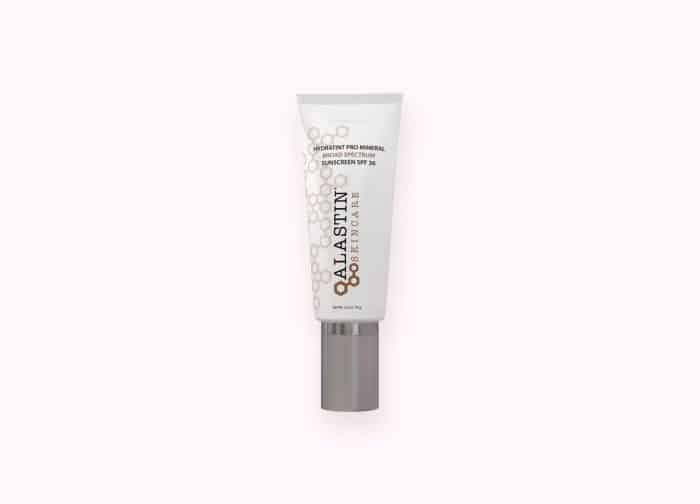
A derm favorite, HydraTint is a great non-comedogenic sunscreen for face. The mineral formula leaves no white residue behind, thanks to a subtle tint that works with most skin tones and also imparts a natural glow. It’s oil- and fragrance-free too.
Neutrogena Clear Face Break-Out Free Liquid Lotion Sunscreen Broad Spectrum SPF 50 ($10.99)
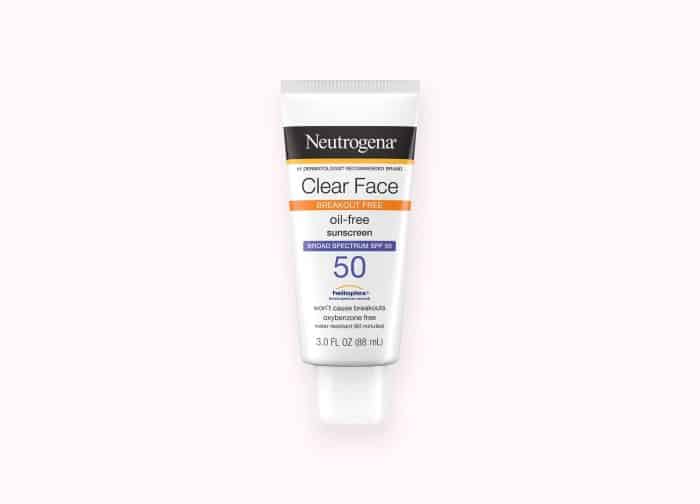
What’s in a name? This oil-free, non-comedogenic sunscreen says it’s breakout-free right on the label, making it a no-brainer affordable drugstore pick. It’s a light liquid, so it blends in much more quickly than a cream, and it’s easy to reapply throughout the day, even over foundation.







